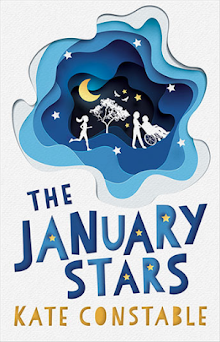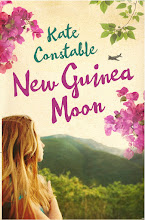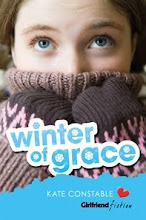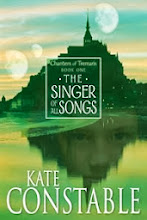The Thin Ice of Love and HopeI've seen two films in less than a week - a record! (since children, anyway.) Both Australian, both wonderful, but very different.
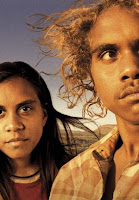
Samson and Delilah, recent winner of the Camera d'Or at Cannes, is a love story between two young Aboriginal people. It's confronting, beautiful, and it go to some very bleak places before it crawls out into the light again. Perhaps the most haunting element for me was the dull, distant, irregular
ker-thunk of cars travelling over the bridge in Alice Springs, while under the bridge, out of sight and out of conciousness, Samson and Delilah struggle to get through another day, sinking into a seemingly hopeless haze of brutality and despair. When the light returns, it's like a miracle, but we know that the struggle for survival is far from won.

Michael and I went to see
My Year Without Sex in our usual uniforms: me in my long cardie, Mikey in his jeans and hoodie top. From the moment Sacha Horler and Matt Day appeared in identical outfits, I knew this film was about
us. Forks in the bedside drawer, nit treatments, the Bulldogs song, all the texture of my daily life was there. Another suburban Melbourne family, holding it together in the joyous, painful, precarious muddle of everyday life, skating on the thin ice of luck, one slip away from catastrophe, with only hope and love to haul us onward.
Ultimately both films are about the same thing, though the daily hurdles Samson and Delilah must negotiate are a hell of a lot higher than those faced by Natalie and Ross. But in the end, it's the power of connection that gives us all the strength to put one foot in front of the other, one day at a time.
Generally speaking, I go to see films for the same reason I read books (though not nearly as often) - to see the world through someone else's eyes, to escape the prison of my own perceptions.
Samson and Delilah certainly opened a window for me on the lives of young Australians who live, in every sense, a long way from where I do. But having said that, it was actually more unusual to see lives that so closely mirrored my own in
My Year, and I
loved it.
PS It was especially refreshing to see an adult film where the kids took up so much space, as people in their own right, not just ciphers or symbols or bit players in the drama, and not as precocious semi-adults either.
Kirsty Murray once said she was sick of reading kids books where the parents weren't real people, and I think the reverse is also often true of adult books and films and particularly TV, where real kids are practically invisible. Remember when Rachel had her baby on
Friends, and we never saw it again? Her mum was always minding it. Rachel's life went on exactly as before, apart from the cot and mobile in the background. Whereas any fule kno, in reality, kids turn your world inside out.






